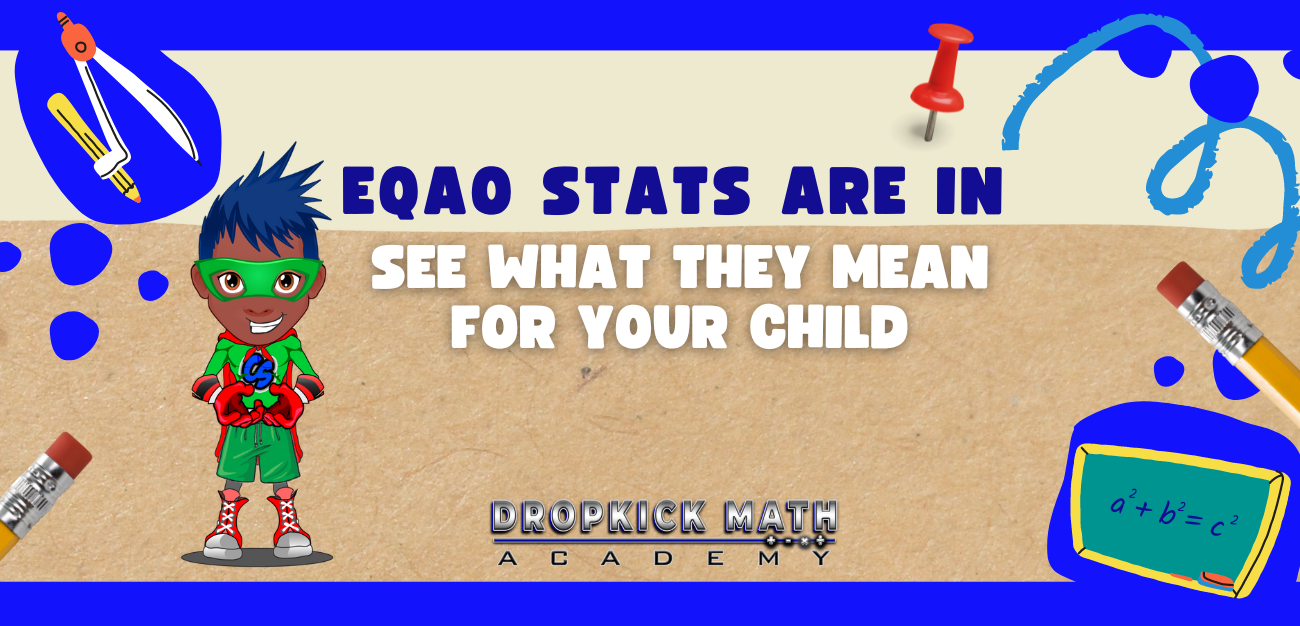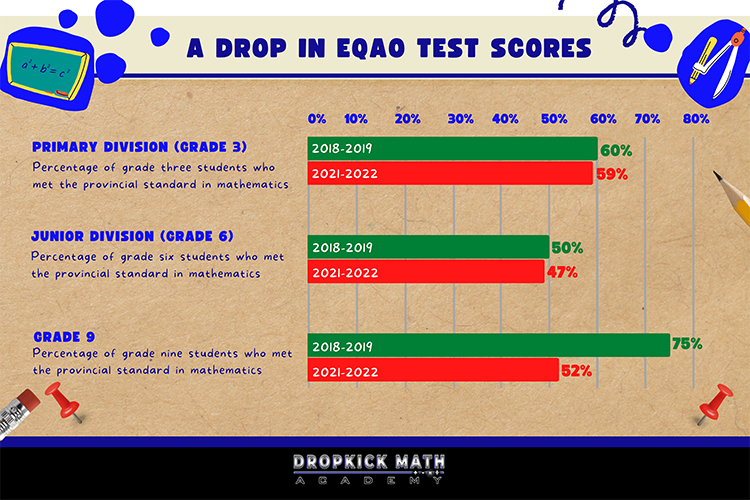
Every year, the EQAO (Education Quality and Accountability Office) administers standardized tests to students across Ontario in order to assess their reading, writing, and math skills. The latest EQAO test results are in, and they paint a bleak picture for the future of our province’s students. According to the data, an alarming number of kids are struggling with basic literacy and numeracy skills. This is cause for concern, as these deficiencies could have significant implications down the road. Parents need to be aware of these troubling findings and take steps to help their children improve their academic performance. Thankfully, there are many resources available to assist parents in this endeavour. With a concerted effort from both parents and educators, we can give our children the best chance at success in life.
The Education Quality and Accountability Office, also known as the EQAO, is an organization in Ontario that assesses education quality in the province’s publicly funded schools. The EQAO administers standardized tests to students in grades 3, 6, 9, and 10 in math, reading, and writing. This data is then used by the government and school boards to evaluate educational effectiveness and make changes to improve student achievement. Additionally, the EQAO conducts research on topics such as teaching practices and early literacy development. By ensuring accountability and continuous improvement in Ontario’s education system, the EQAO plays a vital role in promoting student success.
A Disruption Caused By The Pandemic
The COVID-19 pandemic has disrupted nearly all aspects of daily life, including standardized testing. This year marks the first time since the pandemic’s start that students could take the EQAO assessments. However, their performance on these tests was noticeably lower overall compared to previous years. This can likely be attributed to the numerous challenges faced by students during the past couple of years, such as lack of access to resources and technology, home and family disruptions, and increased stress and anxiety. While these results may be concerning, it is important to remember that standardized tests are just one measure of a student’s academic ability and potential for success in higher education. Ultimately, it is crucial to acknowledge the unique circumstances faced by students during this unprecedented time and not allow standardized test scores alone to define their future opportunities.
The EQAO Results At A Glance
Third-Grade Results:
Only 59 % of Grade 3 students met the province’s math standard.
Sixth-Grade Results:
Only 47% of Grade 6 students met the provincial math standard.
Ninth-Grade Math Test:
Only 52% of Grade 9 students met the provincial math standard.
While assessment results may not directly impact individual students’ grades, they can still provide valuable insights into student performance trends. In fact, assessment results can be a valuable tool for identifying trouble areas in the curriculum or teaching methods. When a class as a whole demonstrates a lack of understanding in a certain subject, it may be necessary to reevaluate the approach being taken and make adjustments to improve student learning. Overall, assessment results should not be disregarded as insignificant; instead, they should be utilized as another tool for improving student success.
As parents, receiving progress reports for children can sometimes be worrisome. Are they keeping up with their peers? Are they reaching their full potential? These are important questions, and the EQAO results can provide some insight into the answer. With the release of the EQAO results, parents can be aware of a possible loss in learning they may see on their child’s progress report. With progress reports being sent home towards the end of November, it is important to remember that your child may be experiencing a gap in learning caused by the pandemic. As the EQAO results show, many students are underperforming. Of course, it is essential to remember that the EQAO results are just one indicator of progress and should not be used as the sole benchmark for a child’s academic success. That being said, progress reports and EQAO scores offer valuable information that can help guide conversations with teachers and inform decision-making about support and interventions. In short, take them into consideration as part of your overall understanding of your child’s progress in school.

Although the EQAO results were concerning, there are many ways to help children with the loss of learning they have experienced through the pandemic. Dropkick Math Academy offers an alternative to tutoring that helps children through fun and engaging game-based learning.
At Dropkick Math, we understand that math may seem like a series of rules and calculations at first glance. However, a true understanding of mathematics goes beyond memorization and involves developing a strong foundation in the four pillars of math: number sense, operational sense, algebraic reasoning, and proportional reasoning. By focusing on these principles and helping children understand their connections to one another, we can improve their overall comprehension of math.
Through our programs, children learn how to solve equations with numbers, why certain methods work, and how they apply in real-world situations. This deeper understanding can lead to greater success in school and beyond. By teaching the root of mathematics, we set children up for long-term success in their mathematical learning journey.
We believe that parents/guardians’ involvement in learning is vital for their success. By being actively involved and setting high expectations for a child, they can be guided towards having high values of doing well in school.
A parent’s attitude about learning can directly influence a child’s educational success. When you learn alongside your child, you are setting an example while strengthening your relationship. Your child will see your confidence building in mathematics, which will also help build them up.
As one of Ontario’s leading math tutoring services, our trained instructors provide support in learning key math skills by focusing on relationships and engaging the parent/guardian. Get started today by learning more about our programs.